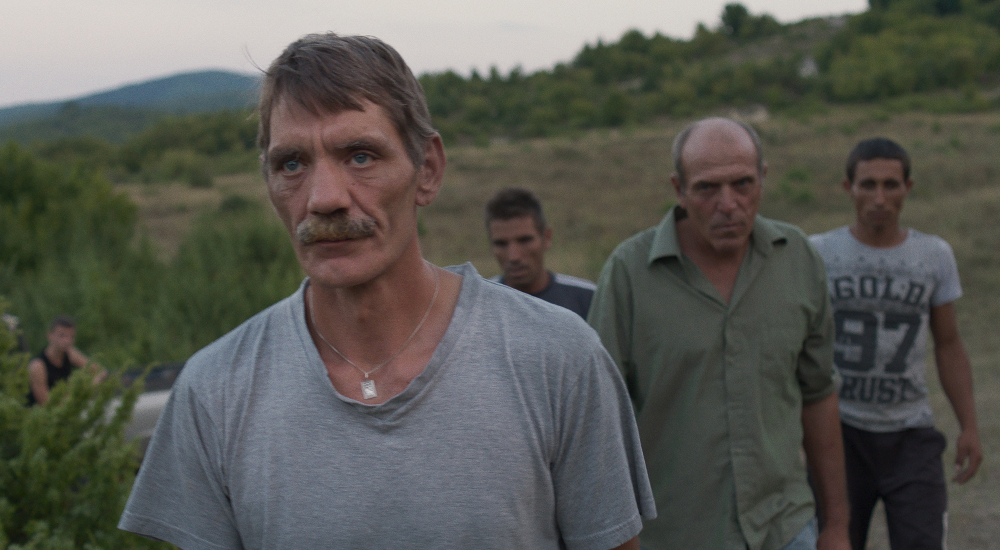“There are no friends in business.”
Referring both to the genre and the protagonist’s position as a Western outsider in an Easter-European border town, Valeska Grisebach’s Western marks her long-awaited return since 2006’s international favorite Longing.
Starring a cast of unknowns (a staple for Grisebach), Western refuses to follow the typical introduction-conflict-resolution outline, requiring time for many to piece together the segments and understand the deep lying story. But once the footing is set the film flourishes, offering up a rare look at the complexities that come with cross-cultural integration and the synthesis of egotism and masculinity.
The story centers on a small group of German men who travel to the Bulgarian countryside to divert a river. While none of them speak Bulgarian they work to co-exist with the nearby village who will benefit greatly when the project is complete.
The story’s central arc doesn’t get started for a bit when Meinhard rides in on a horse he discovered in the nearby hills. Looking for nothing more than a cigarette, he quickly finds work alongside the hard-working men in the countryside, centering the narrative as he merges the two locations, bringing it all together and generating a concise, known direction for the story.
The strong sense of masculine supremacy and country patriotism is on full display from start to finish as the men hoist a German flag at the campground and bear a high number of tense exchanges with both the villagers and, most prominently, women. With numerous language barriers and Grisebach’s keen camera work, we catch the men as they interact with one another and those outside their immediate circle. Hand gestures and, more abrasively, weapons tend to communicate the finer points; however, it is interesting to witness the number of authentic misunderstandings that surface when communication barriers are present.
Neumann (Meinhard) proves to be Grisebach’s most valuable asset, along with the beautiful landscapes that serve as the film’s backdrop. Almost every scene takes place outside, but it is Neumann’s stereotypical stash and gritty facial features that help to sell the story. And though he doesn’t say much, his expressions speak volumes, giving audiences exactly what they need to better understand the journey.
Simplistic, naturalistic and humane, the film progresses slow. But those who stick around long enough will be pleased with its deliberate and convincing actions. Shot without much of a script, character development and exchanges seem true to form, legitimizing the narrative as you find yourself drawn into the conversations and daily activity - no matter how mundane it gets to watch a group of shirtless men long for connection, respect and ultimately, some level of a home.

